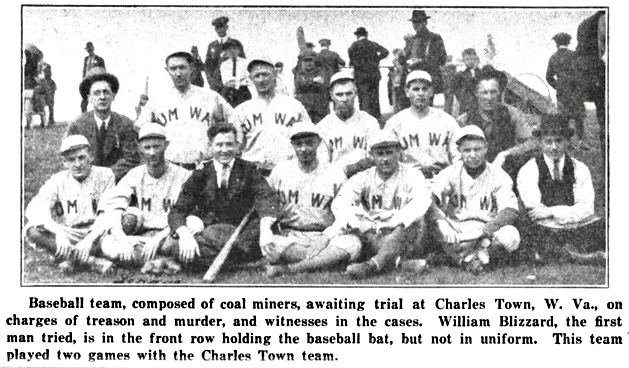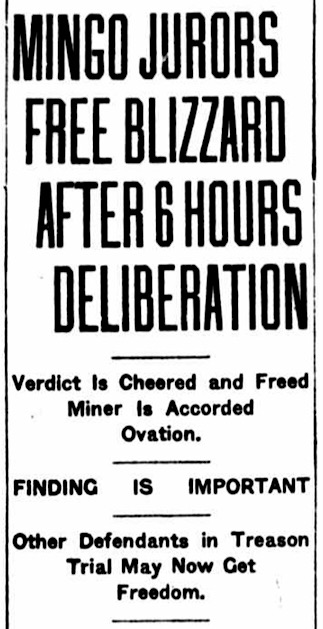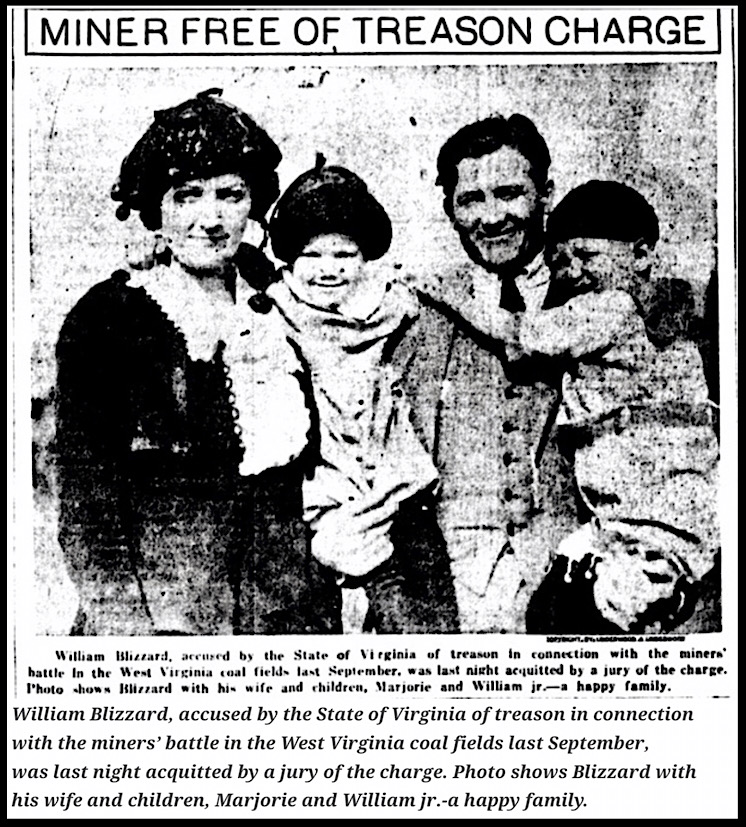THE BATTLE GROUND OF COAL
BY JAMES M. CAIN
I
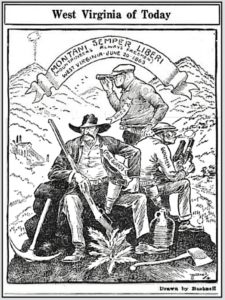
As you leave the Ohio River at Kenova, and wind down the Norfolk and Western Railroad beside the Big Sandy and Tug rivers, you come into a section where there is being fought the bitterest and most unrelenting war in modern industrial history. The country furnishes a suitable setting. Rocky hills, small mountains, rise on each side. They are gashed by ‘creeks’; looking up these, you see that the wild region extends for miles back from the railroad. There is no soft, mellow outline about these hills. They are sharp and jagged; about their tops grows a stunted, scraggly forest. Their color is raw: glaring reds and yellows, hard, waterstreaked grays. Here and there you see the blue-black ribbon of coal.
In this untamed section of West Virginia two tremendous forces have staked out a battle ground. These are the United Mine Workers of America and the most powerful group of nonunion coal-operators in the country. It is a battle to the bitter end; neither side asks quarter, neither side gives it. It is a battle for enormous stakes, on which money is lavished; it is fought through the courts, through the press, with matching of sharp wits to secure public approval. But more than this, it is actually fought with deadly weapons on both sides; many lives have already been lost; many may yet be forfeited.
As the train carries you southeastward, you see some signs of it. You pass many coal mines, and some of these are closed down. At the stations, pairs of men in military uniform scrutinize all who alight. These are the West Virginia State Police; a strong force of them is on duty here, for bloodshed became so frequent that one of these counties, Mingo, was placed under martial law. You pass occasional clusters of tents-squalid, wretched places, where swarms of men, women, and children are quartered. Everywhere you are sensible of an atmosphere of tension, covert alertness, sinister suspicion. It is not by accident that these State policemen appear always in pairs.
If you get off the train at Williamson, county seat of Mingo, you will be at the fighting front. People there will tell you that this struggle has been going on for three years. They will tell you of the bloody day at Matewan, May 1920, when ten men, including the mayor of the town, fell in a pistol battle that lasted less than a minute.They will tell you of guerrilla warfare that went on for months; how Federal troops had to be called in twice. They will tell you of the ‘three days’ battle,’ which resulted, in May, 1921, in the declaration of martial law. Union partisans will tell you of the exercises on May 30 last, when the graves of a score of union fallen were decorated with all the ceremony accorded soldiers who have died for the flag. The operators will tell you of attacks from ambush: how their men have been shot down from behind; how witnesses for trials were mysteriously killed before they could testify. The atrocity list and quantity of propaganda give this war quite an orthodox flavor. It is very hard to sift out the truth.
II
Back in 1898, when the coal industry was quite as unsettled as it is now, the union and the big operators evolved a working plan to stabilize conditions and equalize opportunity. This was the conference in the Central Competitive Field, whereby a wage scale was arrived at for this region, and scales in all other union districts were computed by using this scale as a basis and making allowances for different operating conditions, freight rates, and so forth. This was in order to give all districts an equal chance at the market. Coal is probably the most fluid commodity sold: coal from one section competes with coal from another section remote from the first. It is not analogous to a trade-marked article, for which an arbitrary price can be obtained by advertising campaigns and kindred methods. No amount of advertising can make coal of a given grade from one section outsell the same grade from another section at a higher price. This peculiarity of the coal market was the reason for the basic wage-scale arrangement which gave all districts as nearly equal chances as possible, and precluded the possibility that a miscalculated rate might put whole mining fields out of business altogether.
The plan worked fairly well for a time. Within a few years, however, it was discovered that large new areas of coal lands had been developed, and that most of these were being worked with nonunion labor. They had been left out of the original calculation, largely because the existence of such large virgin fields was not known until after the opening of the present century. Some of them were in Pennsylvania, but most, and by far the largest, were in southern West Virginia. Employing nonunion labor, they worked at a lower wage-scale than the union areas, and had become a formidable factor in the industry, for they were underselling union coal constantly. In the years just preceding the war, their effect on the market-and particularly the greater number of days their labor worked during the year-had become definitely noticeable. During the war, there was demand for everybody’s coal, and there was no pinch then. The pinch came, however, in the year following the peace.
Continue reading “Hellraisers Journal: “The Battle Ground of Coal” by James M. Cain-Union Organization and the Miners’ War in West Virginia” →
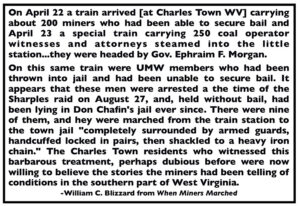 —————
—————
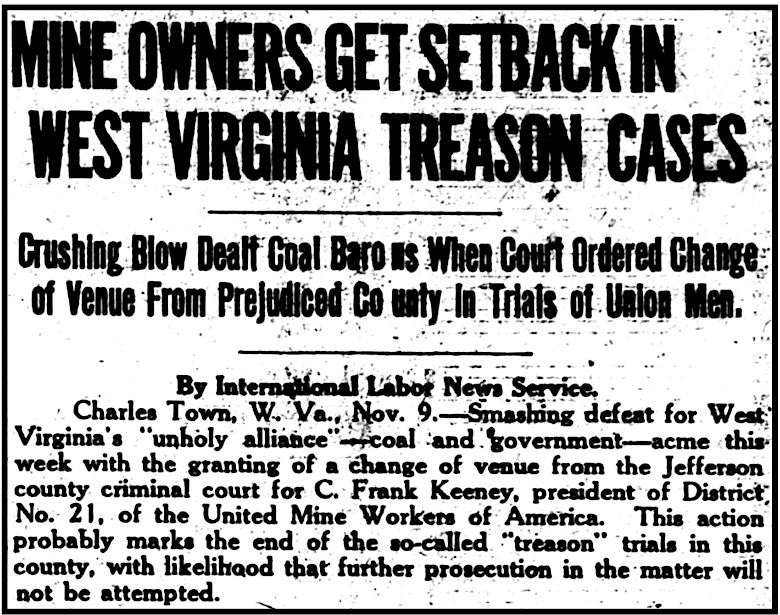
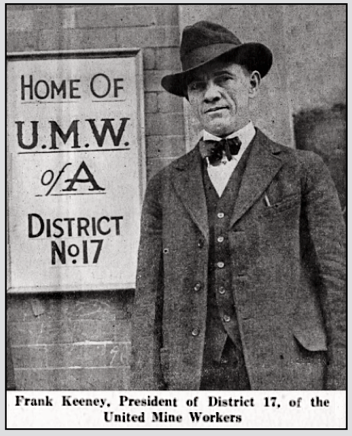
 —————
—————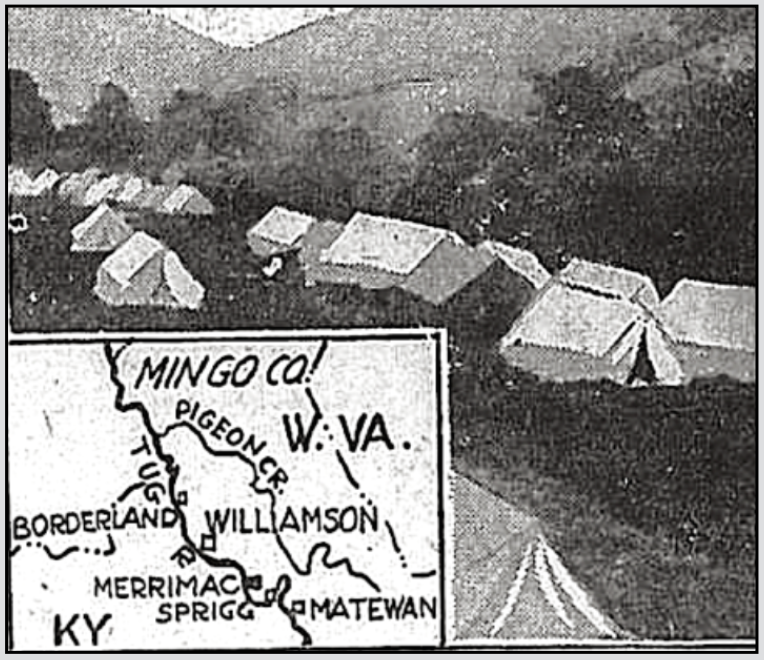
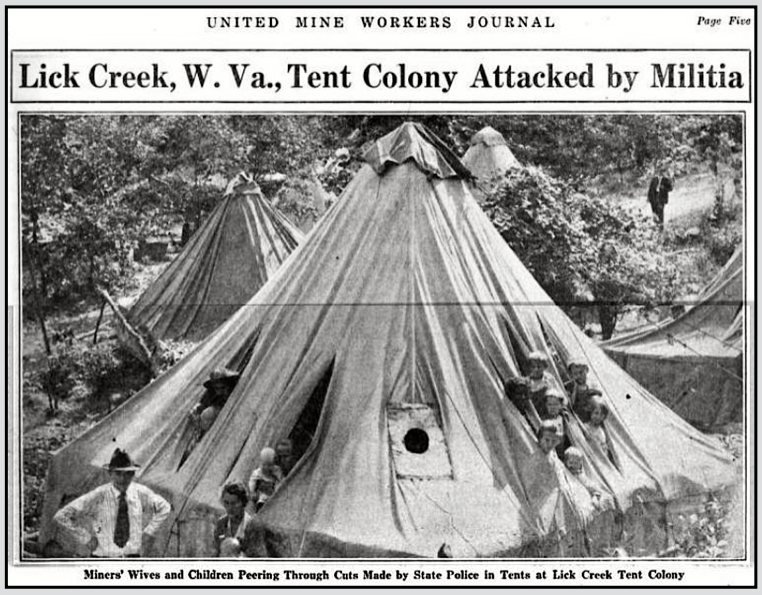
 —————
—————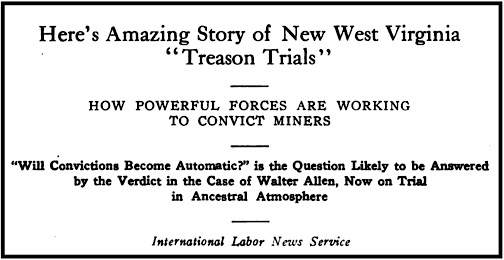
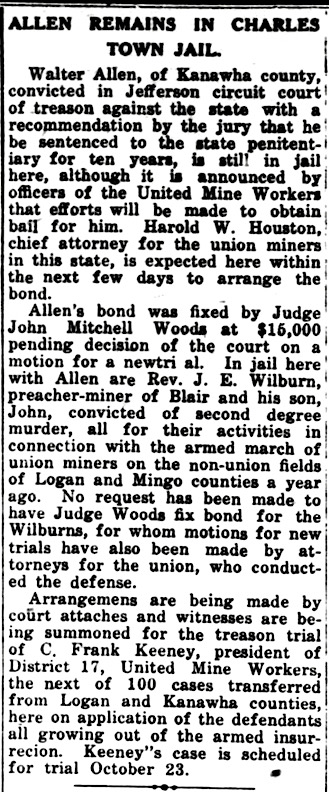

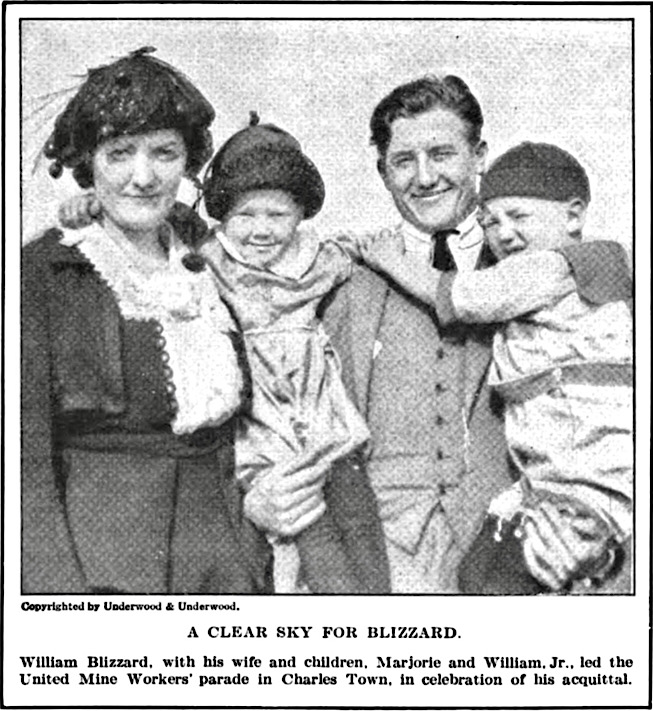
 —————
—————
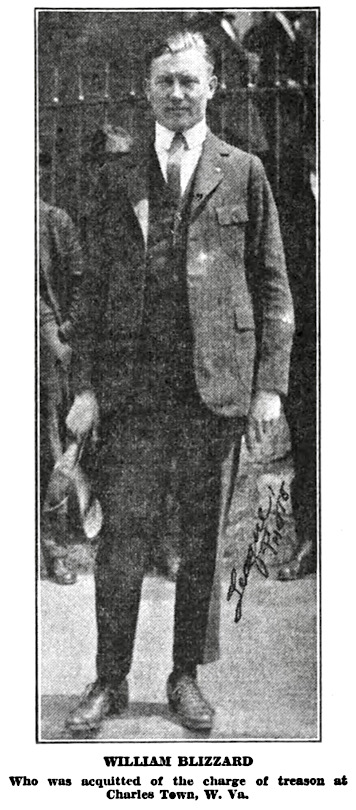
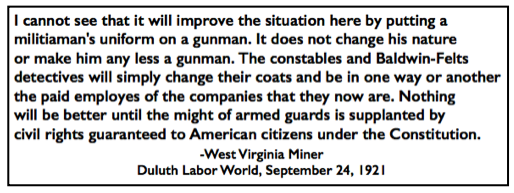 —————
—————